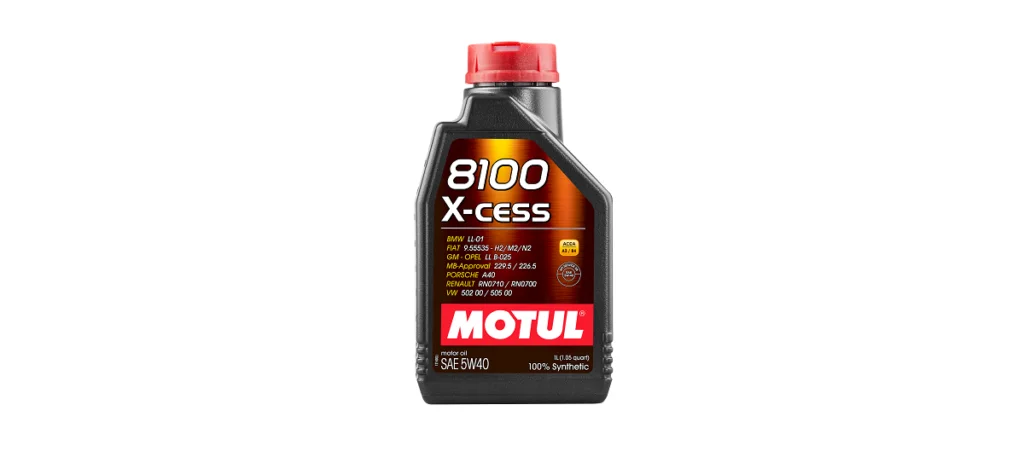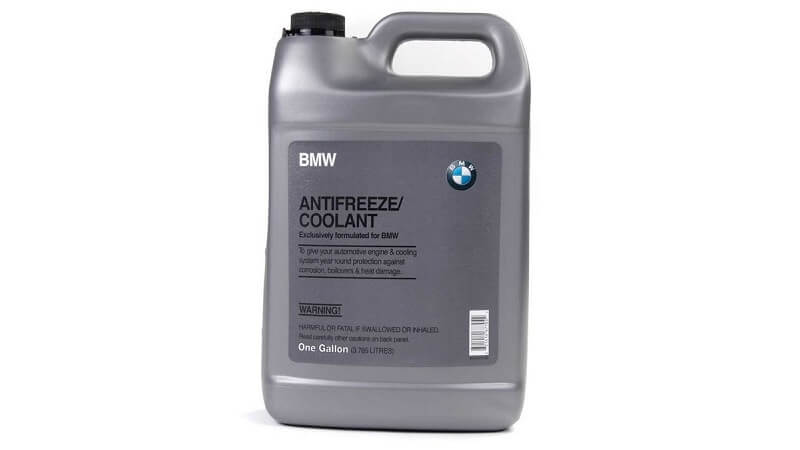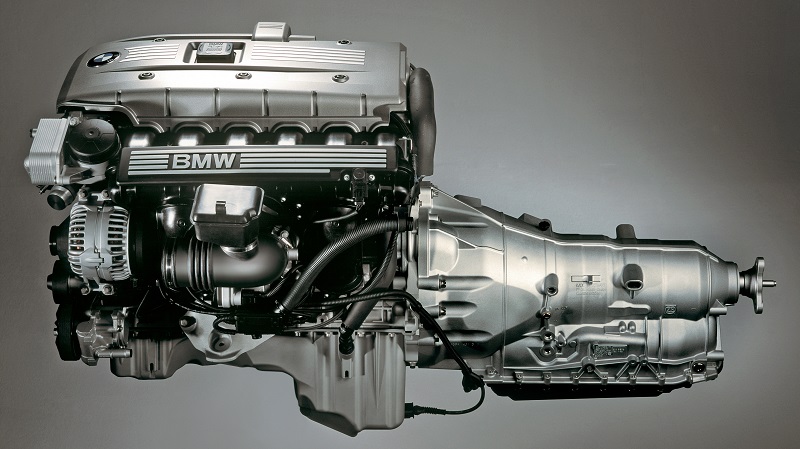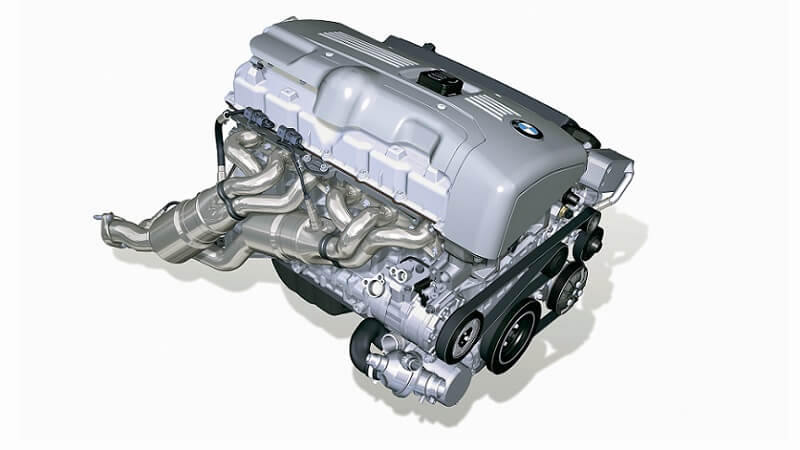Your car’s engine is a rather unforgiving place. The pistons, camshafts, crankshaft and all other internal moving parts spin at incredibly high speeds, causing plenty of friction. However, this friction leads to heat and heat leads to component damage. This is where engine oil comes in. It’s one of the most crucial fluids in any engine as It keeps everything lubricated and spinning freely.
What oil you use in your car can make all the difference in the world. Use the wrong oil and your trouble-free car will turn into a dealership regular. As far as BMW oil goes, there are options for different engines and various driving conditions.
Understandably, picking the right oil can be tricky, especially since there are so many to choose from. This guide will help you with all to know about BMW oils, what to look for, and which brands will get you the best engine performance.

What is the Importance of Engine Oil?
As we mentioned, engine oil acts as a lubricant, reducing the friction between the moving metal parts in the engine. Without oil flowing through, the friction would result in overheating and eventually kill your engine.
Older, conventional mineral oils were relatively simple mixtures of a base oil with some additives — they were required to be changed often and depending on running conditions. Today’s engine oils are highly processed and can maintain their viscosity in varying temperatures. They can also prevent acid and sludge build-up and extend their protecting and cleaning characteristics to other components, like the turbocharger.
What to Look For in an Engine Oil?
The owner’s manual of your car will give you information on your BMW oil’s grade or weight (or SAE oil viscosity), like 5W-30. This figure refers to the oil’s viscosity, which is a crucial piece of information as the oil’s viscosity determines how well it circulates inside the engine.
The ‘W’ in the figure stands for winter. The number that precedes the ‘W’ denotes how well the oil will flow on a cold start, and it’s determined by measuring the thickness of the oil at 0° Fahrenheit (-17.7 °C). Similarly, the number after the ‘W’ depicts flow at higher temperatures, like when the engine is running. This is measured by determining the oil thickness at 212° Fahrenheit (100 °C). This way, the oil’s performance across all normal operating temperatures can be judged.
As the engine runs, the oil heats up and gets thinner. Likewise, when the engine cools down, the oil thickens. The less oil thins as the temperature rises, the higher the second number. For example, 10W-40 oil will thin out less compared to a 10W-30 oil.
On the flip side, if the oil is too thick, it will work the engine harder as it now has to pump a much thicker oil. Camshaft bearings and journals won’t get the much needed lubrication when they need it the most, which will lead to more serious problems down the road. That’s why it is essential to stay within the specs BMW has prescribed for your engine. Speaking of specs, there’s always some leeway to give drivers living in different climate zones a way to keep their cars running smoothly. For colder regions, an oil with a lower number before the ‘W’ is recommended as these flow better at lower temperatures. For someone living in a colder climate, a 5W-30 oil will provide a better cold start protection than say 5W-40 oil.
Conventional vs. Synthetic Oil
The formulation and manufacturing processes behind engine oils have changed significantly over the last few decades. Today’s BMW oils in the market are primarily synthetic. Unlike the older mineral oils, synthetic oil comprises chemical compounds that are broken down and rebuilt until a highly synthesized product is made.
Synthetic oils contain fewer impurities and have a more uniform molecular structure compared to mineral oils. This gives them better oxidation resistance and enables them to perform consistently across a range of temperatures.
A high-quality synthetic oil such as that made by Motul, Liqui Moly and others, does a great job at lubricating the engine and building a protective film over all internal components. Additionally, it also prevents carbon or sediment build-up, thus keeping any impurities away from the engine. On top of all that, modern synthetic blends play a significant role in improving fuel efficiency and reducing harmful emissions.
What Happens When Your BMW Runs Out of Oil?

When your engine runs out of oil, the internals will experience a spike in friction as there is no fluid lubricating them. This can lead to severe damage and even result in a seized engine.
The most common issue caused by low amounts of oil are spun bearings. Once that happens, you’ll run into engine knock issues and potentially other damage since you now have a free floating chunk of metal somewhere inside the engine
On newer cars, the check engine light (CEL) will light up in case oil levels drop below the recommended minimum. You can just top up the oil, but we recommend drain the remaining fluid and replacing it with fresh engine oil, especially if you’re nearing your oil change interval.
How Often Should I Change My BMW Oil?
Oil change intervals can vary from model to model, and the easiest way to find out how often one is recommended is to check the owner’s manual.
With older cars, oil changes were recommended every 3,000 miles, and this was because these engines weren’t as refined as modern-day ones. This caused the oil to break down sooner, warranting more frequent changes.
On the latest BMW models, the recommended oil change interval can range from 10,000 miles to 15,000 miles, or every 12 months, whichever comes sooner. It’s worth remembering that this is only an estimate that the German manufacturer wants us to go by.
If you run your engine hard or frequent the racetrack, you’ll probably need to change your oil sooner. Similarly, your engine should be okay if you exceed the recommended mileage by a little, but we advise against doing so.
With all that said, more frequent oil changes can only be a good thing. Prevention trumps repair in every single instance, and frequent oil changes are about as good as prevention gets with BMW engines. Spending some extra money on oil changes can easily save you money if it means that something like your VANOS won’t get clogged and require a rebuild.
What Are the Different BMW Oil Specifications?
When you check your owner’s manual, you’ll find options for specifications for oils that are compatible with your car. Here is the list of BMW oil specifications:
BMW Longlife-98 (BMW LL-98)
This is the oldest specification of BMW oil out there, and it’s recommended for BMWs manufactured before 2002; this includes engines that came before the M54. This is not a very common oil spec, and finding it can be challenging as companies started to phase out production around 2009. In its place, BMW recommends the LL-01.
BMW Longlife-01 (BMW LL-01)
The BMW LL-01 oil can be used on BMWs where the BMW LL-98 is recommended. This oil was a significant step up from the LL-01 and was introduced when the car manufacturer switched to its extended oil change intervals with the newer, post-2002 engines. As far as options go for this spec, there is Genuine BMW LL-01 5W-30, but there are also other oils such as the Motul 8100 X-Cess 5W-30, which is also a great choice.
BMW Longlife-01 FE (BMW LL-01 FE)
The Longlife-01 FE is similar to the previous oil spec on this list but with minor modifications for better fuel economy, hence the ‘FE’ suffix. Oils of this specification are only used on the N1x, N2x, N54, N55, N63, and N74 engines. The Motul Specific LL-01 FE is a great alternative to the Genuine BMW oil for this particular spec.
BMW Longlife-04 (BMW LL-04)
The LL-04 spec oils are most commonly recommended for diesel engines, but they have been approved for gasoline engines and specific international markets. Until fairly recently, you couldn’t find Genuine LL-04 oil stateside due to a number of factors. However, that has changed. Now there are Genuine LL-04 oils available from BMW. Furthermore, this spec is often the oil of choice for those who run turbo engines and want some extra protection.
BMW Longlife-12 (BMW LL-12)
The Longlife-12 oil spec was developed for newer BMW diesel engines, particularly those manufactured after 2013 and select gasoline engines.
BMW Longlife-14+ (BMW LL-14+)
The LL-14+ specification BMW oil was developed for newer petrol engines from the German manufacturer, like the N20, B48, and B58. This BMW oil has an HTHS (High-Temperature High Share — the viscosity of an engine oil at 150 °C) rating of 2.6cP, which isn’t the greatest as it offers lower engine protection than higher cP rated oils. However, the idea behind the Genuine BMW LL-14+ was to offer better fuel economy. Needless to say, if you’re looking to track your car or run it hard, you might want to look for a different oil such as the LL-17.
BMW Longlife-17 (BMW LL-17)
The LL-17 is an update to the LL-14+ formula and reduces emissions. It’s compatible with the same engines — N20, B46, B48, and B58. This is the recommended oil for most newer gasoline and diesel-powered BMWs. Aside from the Genuine BMW blend, there are several good options out there including the Motul 8100 Eco-Clean 0W-20.
What Are the Best BMW Oil Options?

Which oil to get? That’s probably one of the most divisive questions you can ask in the automotive community. Everyone has their own idea of what a good oil is.
There are many engine oil brands out there, and equally as many factors that affect which one is right for your engine. Of course, you can’t go wrong with Genuine BMW lubricants. But if you’re looking to get something different, Penzoil, Liqui Moly and Castrol are just some of the names that come to mind.
Here at Bimmers.com, we’ve established a close relationship with Motul — a premium manufacturer of automotive lubricants. This company has a long history of making some of the best oils you could put in your Bimmer. Motul has been at the cutting edge of motorsports oil development, which is why BMW Motorsports USA has chosen Motul as their official partner.
One of the more popular Motul oils for BMWs is the Motul 8100 Series oils, although there is also a Motul Specific line of oils that further matches the BMW’s LL specifications. That being said, some examples of the 8100 series include the Motul 8100 X-Max 0W-40 (BMW LL-01), Motul 8100 X-Cess 5W-40 (BMW LL-01), and the Motul 8100 X-Clean 5W-40 EFE (BMW LL-04).
Get Quality Lubricants for Your BMW!
Here at Bimmers.com, we strive to offer only the best when it comes to engine oils and other lubricants. If you’re unsure what oil to get, simply head over and shop our BMW oil selection, select your vehicle from the drop-down menu, and search for engine oil. You’ll get a list of products that perfectly match your car!





